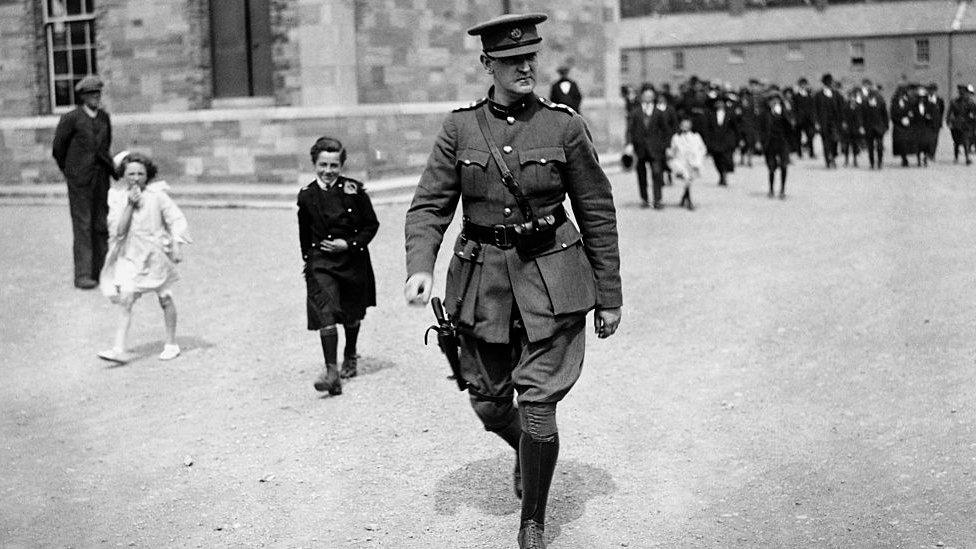Michael Collins: Commemorations continue to mark death 100 years on
- Published
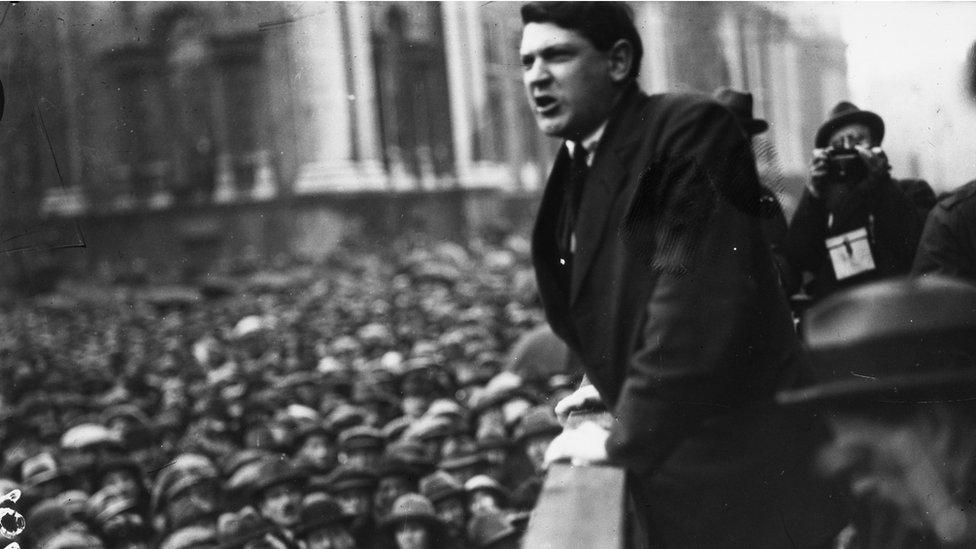
More events will take place in County Cork on Monday to remember Michael Collins who was killed 100 years ago.
Collins was a key figure in Ireland's battle for independence from Britain in the early 1920s.
On Sunday, the leaders of Fianna Fáil and Fine Gael put their historic differences aside to attend a ceremony commemorating Collins' death.
The two political parties have their origins in the Irish civil war of 1922-23.
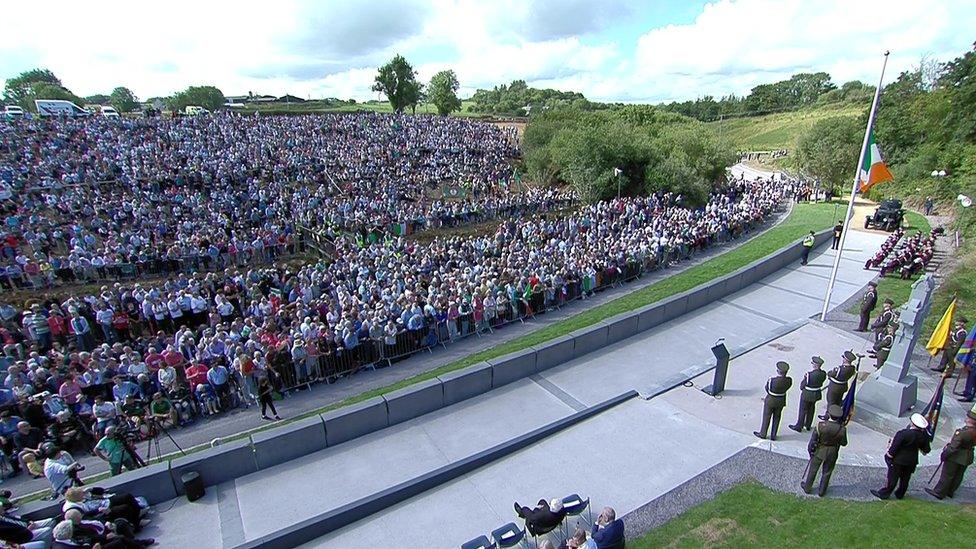
Thousands gathered for a commemoration event in west Cork on Sunday
The war was fought between forces for and against the Anglo-Irish Treaty.
The agreement, signed in London in December 1921, gave Ireland a degree of independence in 26 counties but not a 32-county republic.
Collins signed the controversial treaty and said afterwards he feared he may have signed his own death warrant. He was right.
On 22 August 1922, he was in a convoy which was ambushed at Béal na Bláth in west Cork by anti-Treaty forces. He was shot in the head and died shortly afterwards.
Eyewitnesses said that once the convoy was attacked, 31-year-old Collins insisted on fighting back rather than trying to flee the area.
At the time, he was in charge of the pro-Treaty forces and many historians and political commentators have since questioned his decision to leave himself exposed on a country road in rural Cork.

Who was Michael Collins?
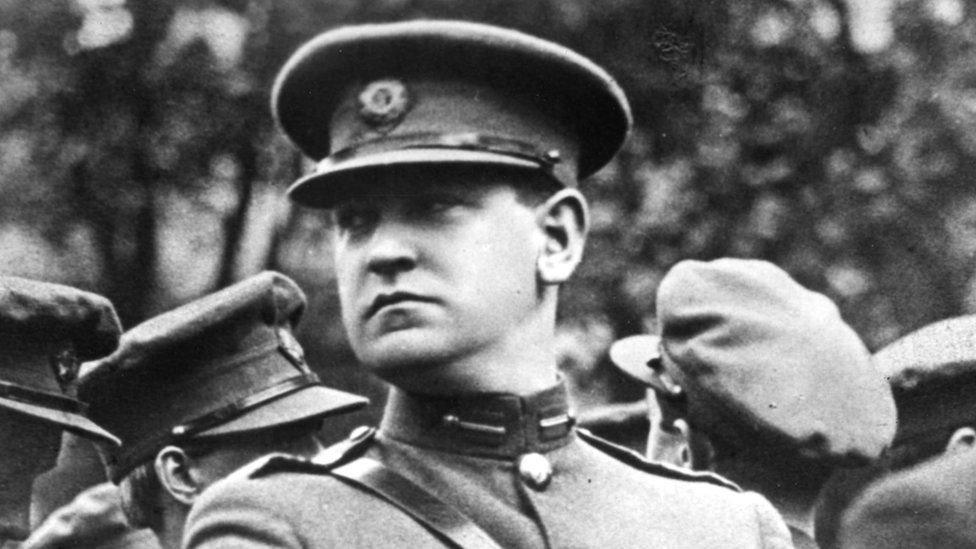
Michael Collins was a politician and military leader in revolutionary Ireland
Born on a farm in rural County Cork in 1890, Collins grew up to be one of the most prominent figures in the Irish revolution, which led to the partition of the island in 1921.
He moved from Cork to London as a teenager and worked for the British Civil Service as a postal clerk, but he returned to Ireland almost a decade later and took part in the 1916 Easter Rising.
That brief rebellion against British rule was crushed, but two years later Sinn Féin won a landslide election victory and set up a new breakaway government in Dublin.
Collins, by that stage an elected MP, became both a minister in the provisional government and director of intelligence for the Irish Republican Army (IRA).
Following the Irish War of Independence (1919-1921), a reluctant Collins was sent to London by Eamon de Valera to negotiate a peace deal.
The controversial 1921 Anglo-Irish Treaty created an independent Irish Free State, but it angered many republicans as it appeared to copper-fasten Britain's recent partition of Ireland.
The treaty caused a bitter split in the republican movement and within months, tensions boiled over into the Irish Civil War.
Collins became commander-in-chief of the Free State's new National Army as well as chairman (leader) of the provisional government.
His tenure in charge was short-lived, however, as he was assassinated by anti-treaty forces in his native County Cork on 22 August 1922.

Prof Marie Coleman, from Queen's University in Belfast, told BBC News NI: "There are a lot of questions about what he was doing down in the field in Cork in the first place.
"I think what it shows is that he wasn't a very experienced military man. During the war of independence (with Britain) Collins was the director of intelligence and he was the minister for finance on the civilian side.
"He had very little experience of fighting in the field in the guerrilla war."
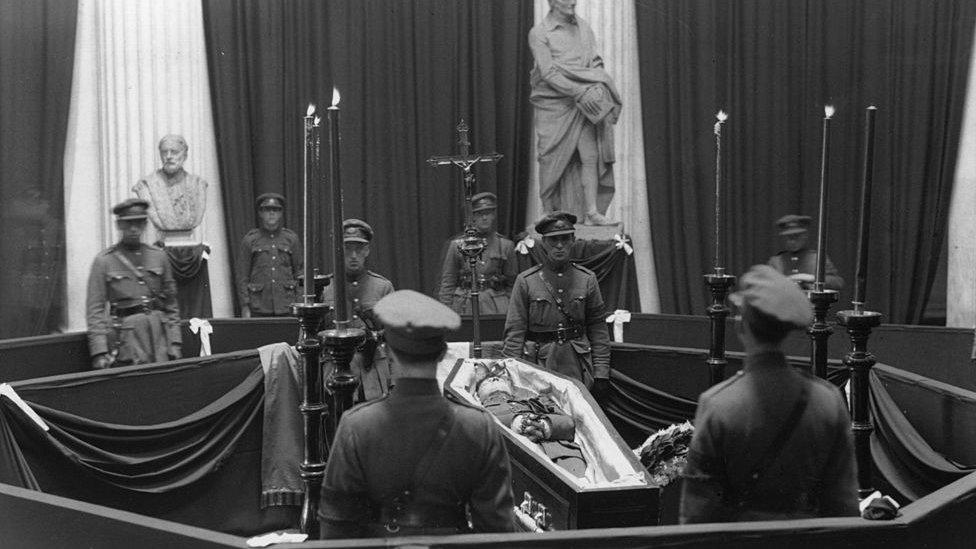
Michael Collins' body lay in state before his funeral
The year before his death, he stood for election to the first Northern Ireland parliament. He ran for Sinn Féin in the Armagh constituency and won a seat with 12,656 votes.
In a speech before the election, reported by the Freeman's Journal, Collins set out his opposition to the partition of Ireland.
He said: "We ask our friends to vote for us on the ground that Ireland is one and indivisible, and that she is not to be torn asunder by any act of an English assembly.
"We stand, further, to reassert the principle fought for in 1916, confirmed by the votes of all Ireland in 1918, and being fought for at the present moment throughout the length and breadth of Ireland."
He remained a Northern Ireland MP until his death in spite of his refusal to take his seat.
Éamon de Valera was also elected for Sinn Féin, as was Arthur Griffith, a founder of the party.
Griffith died 10 days before Collins in August 1922. It meant that two seats in the new 52-member parliament in Belfast were vacant but by-elections were not held.
Related topics
- Published21 August 2022
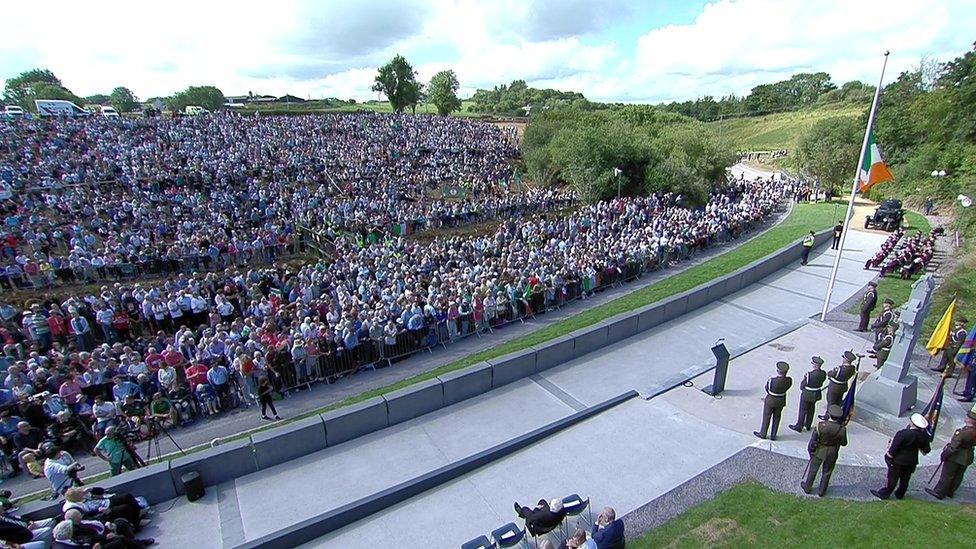
- Published21 August 2022
